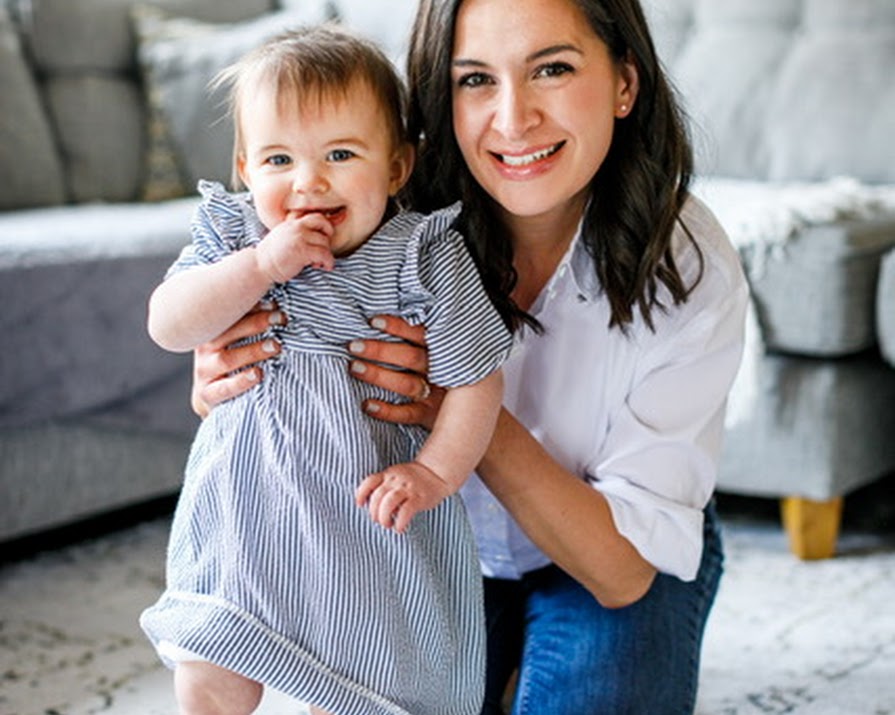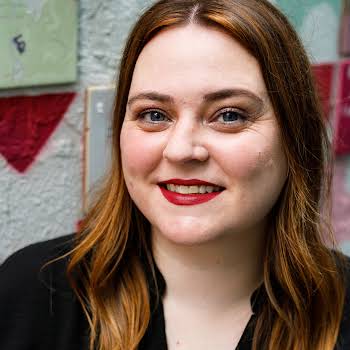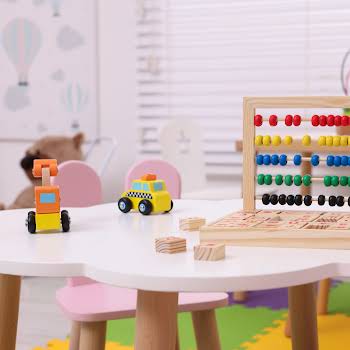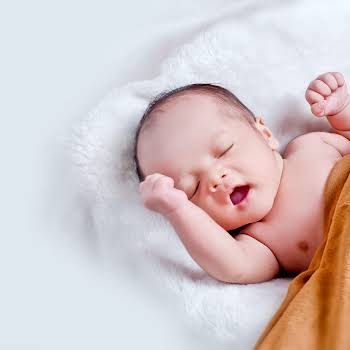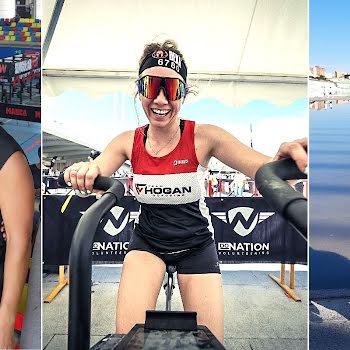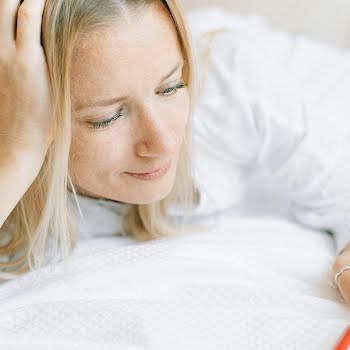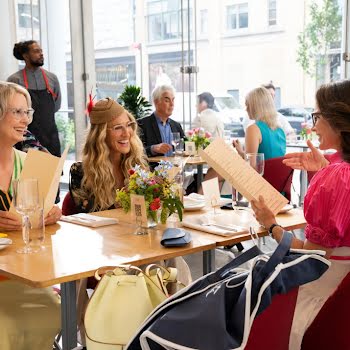
‘In the psychiatric hospital were a bunch of undiagnosed mums, with no explanation’
By Dominique McMullan
16th Mar 2023
16th Mar 2023
Ten months after the birth of her first child, Laura Guckian found herself being admitted to a psychiatric hospital where she remained for eight weeks. During that time she made a promise to herself that, if she ever felt able, she would ensure no mother ever had to reach the crisis point that she did.
Laura Guckian is a mum to three kids. She is also the owner and founder of Mind Mommy Life Coaching and is passionate about normalising the challenges of Motherhood so that mums feel less alone in their experience.
When I interview Laura, I am moved both on a personal and professional level. Our conversation was a special one. One that I know sowed seeds for a more lasting dialogue. Not only do I feel passionately about the same things she does – opening up lines of dialogue about modern motherhood and the deeply difficult challenges that come with it – but I’m also knee deep in early years mothering myself and have faced significant mental health challenges recently.
Speaking to Laura reminds me that I’m not alone. That we, as modern day mothers, face unthinkable challenges day in, day out. We are not imagining it – this is hard. As Laura says “Not since the end of the second world war, has there been a more challenging time to be a mother”. We have never been more stretched — financially and emotionally. Many of us live in isolated bubbles, our “village” has shrunk. Our own parents are older – meaning they may also need care, and are less able to provide support. We have achieved so much in terms of equality in the workplace, but that also comes with a penalty as societal demands on a mother struggle to keep up with the opportunities presented to us. I could go on.
Advertisement
Before Laura had her first child, nearly seven years ago, she was excited about motherhood. She explains “If you look at the societal narrative and marketing around motherhood, it’s portrayed as the best time of your life, a love-filled bubble. I couldn’t wait. I knew there would be parts that were difficult, I knew there would be a bit of sleep deprivation, but I had no idea what was actually about to happen to me. I went in blind. I wish someone had told me. I wish I could have been more educated and informed.”

I feel the same way, looking back at myself before the birth of my first son. Is lack of education to blame, I ask Laura? “When you look at antenatal programmes in Ireland – what are they focused on? Birth. Labour. Delivery. And how to care for the baby. They are of course important things, but where is the mum in that? There is a massive gap in our education system starting all the way back with teenage girls. We need to tell them ‘This is what you might feel if you have a baby. This is what might happen. This is normal. Here is the help you can get. Here is how to build the support network you will need’”.
Laura’s labour and delivery for her first baby, Leo, went well. But from there things rapidly went downhill for her. “It was like a switch was flipped when they handed him to me. I was thinking ‘This doesn’t feel like it should, what the hell just happened, I don’t know how to hold this baby.’ I went from excitement to fear. I was so terrified. I remember the first two days in hospital just crying my eyes out. It just went from bad to worse, with no support offered. One nurse even said ‘You are going to struggle with this’ and I took that comment as proof that I was a bad mum, and kept it with me.”
Downward spiral
Her first few months of motherhood were spent in a downward spiral, trying to come to grips with a sick baby and still not receiving the help she desperately needed. “Leo had severe silent reflux, he was waking every twenty minutes. He wouldn’t stop crying. He wouldn’t eat. I knew I was very unwell but I was in the frame of mind of ‘You can’t take care of yourself, that’s not what mums do. I’ll take care of myself when he is better’.”
When Leo was ten months old, Laura was admitted to a psychiatric hospital. I ask her to tell me about her journey to that point, a place I feel that many of us, myself included, are only one or two decisions away from. “I had ten months of hell. I was in Dublin, with no friends or family near, and with a very sick baby. My husband was at work every day. I knew I was really unwell but I couldn’t grasp how bad it was. I had been to the GP in the months before who told me it was probably ‘a bit of post-natal depression’. He gave me medication that didn’t work for me.
Advertisement
I knew I was really unwell but I couldn’t grasp how bad it was
“Everything was escalating. I felt like I was suffocating. I was shouting to everyone around me, ‘I am drowning’ and they all kept telling me I was fine. And the thing was, I studied psychology, I had volunteered for a mental health charity, I was someone that was very well placed to access mental health support… and still I couldn’t get it.”
Things culminated for Laura one Sunday morning when Leo was ten months old. “I woke up and I didn’t want to die, but I was at a stage where I wished that I could close my eyes and never wake up again. I didn’t want to exist. I was asking for help and no one could hear me. I picked up the phone to my best friend that morning. It was my last chance. She got me the help I needed. I went to the GP the next day and said ‘I need to be referred to a psychiatric hospital.’
I didn’t want to die, but I was at a stage where I wished that I could close my eyes and never wake up again
“A week later I packed my bags and checked in. I ended up there for two months. My mum and dad came up and took Leo, and before I went he was crying with his arms out for me, and there was this moment where I realised – I can’t take him. Right now, I can’t be his mum.
Psychiatric hospital
I’m so sorry, I tell Laura. It shouldn’t have gotten to that point. “No,” she agrees. “It shouldn’t have. I had been so neglected by our healthcare system that I needed a two month stay in a psychiatric hospital.”
Advertisement
Does she think that Sunday morning moment could have been avoided? “I believe that the challenge in Ireland is catching women before that point. There is no intervention before the medication and/or a psychiatric hospital stage. I believe had I received intervention and help before that point, I wouldn’t have ended up in hospital at all.”
Laura goes on to tell me about her experience in the facility. “There was no diagnosis. They tried me on medication, it didn’t work. They checked me for every possible mental illness: I didn’t have one. They said it wasn’t post-natal depression, it was psychological. That was hard, as I still didn’t really understand how I ended up there. I kept asking myself how does a healthy woman end up in a psychiatric hospital with no diagnosis?
Had I received intervention and help before that point, I wouldn’t have ended up in hospital at all.
Everyone in the hospital would ask each other ‘Why are you here?’. There were people with diagnosed mental illnesses who would come in and out, and then there were a bunch of undiagnosed mums, all asking the same question, with no explanation.”
Laura remained unwell and unable to go back to work for the following three years. “You don’t just walk out of a facility like that better, you have to rebuild your life” she tells me. “I spent three years in a cycle. I was waiting for someone else to tell me what to do, or to find a perfect solution – which of course didn’t exist. I had experienced two miscarriages which I took as punishment for not being a good mum. And then one day, anger took over and propelled me to change. It was then I started learning about matrescence and life coaching. I started making a series of tiny steps and went back to work”.

Advertisement
Post-partum Parachute
Laura had her second child Alex soon after. I ask her if she was frightened at the prospect of having a similar experience as with her first? “I knew there was a possibility I would get unwell again. But I did it out of love for Leo, I wanted to give him a sibling. Thankfully, Alex’s first months were such a different experience to Leo’s. He was so calm. But that came with a certain sadness. I was looking at this beautiful baby, I was surrounded by such a supportive and compassionate team, and I truly understood what I was robbed of the last time. I was overwhelmed with grief for myself as a vulnerable first time mum. When I brought Alex home, it was still hard of course, but it was different because I knew how to support myself. I knew what I needed.”
Laura had built what she describes as her ‘post-partum parachute’, and felt safe, ready and supported. Unfortunately, life can throw some extraordinary curveballs, and for Laura, that came in the form of Covid arriving when Alex was six weeks old. “There was a moment of panic. I was in the car talking to my psychologist worrying that I was going to become unwell again. But I didn’t. I got myself unstuck.”
That won’t be the case for some women, of course. Mental illness is not something within an individual’s control. However, as Laura explains, there is an important difference between mental health, and mental illness.
Mental ill health vs mental illness
Laura says, “We all have mental health. We don’t all have a mental illness. I have seen people with a diagnosed mental illness with positive mental health. And I have equally seen people who don’t have a diagnosed mental illness, and they have extremely poor mental health. We can’t control a mental illness, but we can influence our mental health. You can’t decide to be happy, but you can influence your state of mind.”
Laura’s words resonate with me. I do not have a mental illness, but I have certainly suffered with poor mental health in recent years. It is easier for people to understand a mental illness diagnosis. We know how to treat it, how to prescribe, there are procedures to follow. Ill mental health however, which can be just as debilitating and serious for those suffering, does not have a rule book. And as society, it’s something we do not quite know how to tackle. Aside from perhaps being prescribed some very helpful “self-care”.
Laura explains, “This is key when we talk about mental health and motherhood – from my professional experience and what I have been through – when a mum says she is struggling, she is often told she has postnatal depression. I am not a doctor, but I know postnatal depression is a very serious and real thing caused by a chemical imbalance and experienced by many mums. Medication is a very powerful tool to help you in that situation.
Advertisement
“But postnatal depression is a very different thing to a mum navigating matrescence and having a very difficult time in her life. Medication is not going to fix that. No medication was going to fix me. I did not have postnatal depression. I needed to take control and make my journey as a mum easier, because no one else was going to.
Postnatal depression is a very different thing to a mum navigating matrescence and having a very difficult time in her life. Medication is not going to fix that.
“I made the decision when I was in hospital that if I ever felt well again, I was going to make sure that no woman would have to go through what I went through. That is what led me to studying matrescence and becoming a life coach for mums. Mums need support to navigate motherhood. They need to know they are not alone. If the mum is happy, everything else flows. We NEED to shift the narrative around that.”
A mere few weeks after launching her business Minding Mommy, Laura found out she was pregnant with her third child, Anna, who is now 20 months old. Laura took it all in her stride. “I knew I was doing the right thing. There was a flood of followers when I set up the Instagram account. There were so many women saying ‘I thought I was the only one’.”
Almost two years on Laura has now coached nearly 2,000 mums. She adores what she does. “I have never been happier in life. Yes I still find motherhood hard, I still have moments where I lock myself in the toilet and cry. But that is motherhood. I now have the tools to navigate the challenges.”
Advice for mums
What advice does Laura have for mums who might be struggling? “Don’t wait for validation from someone else to seek support. You don’t have to be at crisis point. You don’t have to be the worst. Only you know what you feel, you don’t need someone to tell you what is right or wrong for you. If you are feeling anxious or stuck, that is valid and real and you can reach out for support.”
Advertisement
You also need to understand that this IS hard. Recognise that your village doesn’t exist so… you need to redefine your village. It doesn’t always need to be physical people, it could mean leaning into a bit of screen time for example. If it means you are a calmer or happier mum, then do it. Write a list of what you need to make things easier.”
Recognise that your village doesn’t exist so… you need to redefine your village.
Understand that you are at the most vulnerable stage in your life. When you are going through matrescence you are at your most vulnerable time phycologically. You are also dealing with post-partum depletion and baby brain. These have real, physical impacts on your mind and body. You are also probably also balancing a career with motherhood, oh and of course there is the sleep deprivation. In order to navigate this, your needs *need* to be met.
It’s not about bubble baths or long walks – but a serious look at what you need to build up your reserves. That might mean quieting your inner critic, it might be giving yourself permission to watch crap on Netflix. But you have to take care of yourself, first, foremost, and always.”
Laura Guckian is an IMAGE Business Club coach, an accredited life coach for Moms and the founder of Mind Mommy Coaching- a life coaching service dedicated to helping Moms at all stages of motherhood overcome the challenges of modern day parenting to achieve personal and professional wellbeing and success. She has supported over 2,000 Moms on a one to one, group and corporate setting to help them become unstuck and be happier. She can be found on Instagram or online
Advertisement











